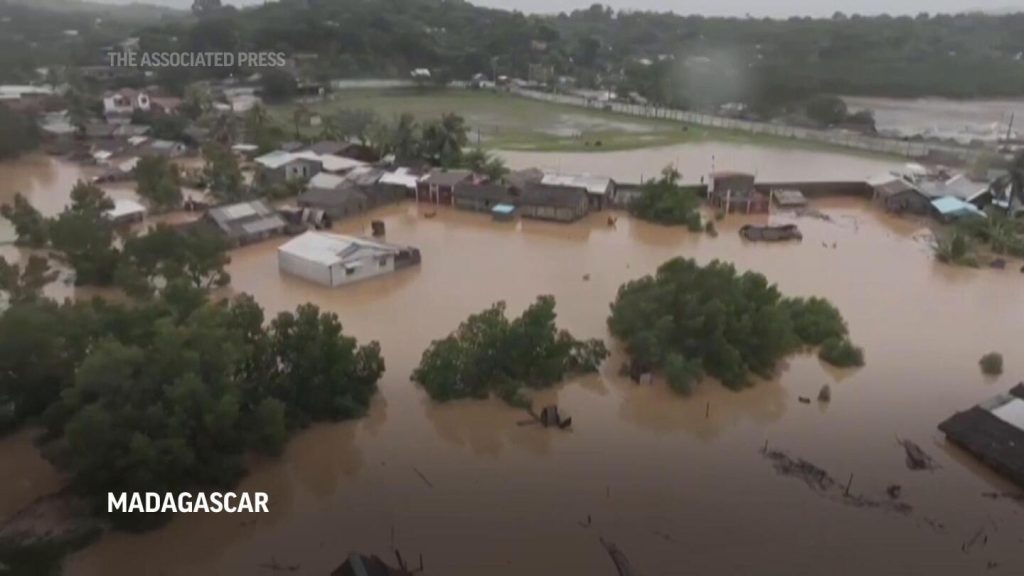Tropical Cyclone Gamane has left a trail of destruction in Madagascar, killing 18 people and leaving four missing. The storm made landfall earlier this week in the north of the Indian Ocean island nation, causing severe flooding that partially submerged entire villages, displacing or affecting around 47,000 people. Landslides triggered by the cyclone also injured three people, according to the National Office for Disaster Management.
Residents in the Diana and Sava regions in the north of Madagascar are facing the aftermath of Cyclone Gamane, with bridges and roads washed away, houses and rice fields submerged, and water levels nearly reaching the roofs of some buildings. The storm has now weakened considerably, but the damage left behind is extensive. People are paddling in canoes around their villages to help those trapped in their homes, highlighting the urgency of the situation.
The cyclone red alert was lifted on Thursday morning after the storm brought wind gusts of over 210 kilometers per hour. Madagascar has faced at least 10 strong tropical cyclones since the beginning of 2022, contributing to a hunger crisis in parts of the island. The World Food Program has raised concerns about the island’s vulnerability to extreme weather events and the impact on food security, exacerbating an already precarious situation.
The United Nations has noted that the frequency of cyclones in Madagascar in recent years is unprecedented, with the country also experiencing its worst drought in four decades in the south. Madagascar is considered one of the countries most at risk to climate change, with high rates of poverty exacerbating the challenges faced by the population. The World Bank has emphasized the need for climate adaptation and resilience-building measures to mitigate the impact of extreme weather events on vulnerable communities in Madagascar.
As the island nation grapples with the aftermath of Cyclone Gamane and the ongoing challenges posed by climate change, international assistance and support will be crucial in responding to the immediate needs of affected populations. The coordination of relief efforts, including food, shelter, and medical assistance, will be essential in addressing the humanitarian crisis unfolding in Madagascar. The devastating impact of natural disasters like Cyclone Gamane underscores the urgent need for climate action and sustainable development to build resilience and protect vulnerable communities in Madagascar and other climate-vulnerable regions.


